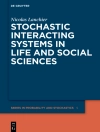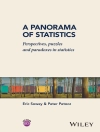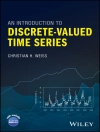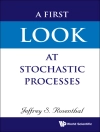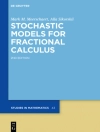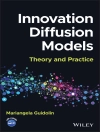Computational intelligence consists of those techniques that imitate the human brain and nature to adopt the decision-making approach. This book contains selected papers from the 8th International Conference on Computers, Management and Mathematical Sciences (ICCM) 2022 about fuzzy systems, neural networks and evolutionary computation that can address stochastic environments where reasoning is a significant attribute to derive potential solutions and focus on the business domain’s computational aspects.
This is a conference proceedings for scholars/students who are using the powerful algorithms, concepts and principles of computational intelligence in a wide spectrum of research cases.
Innehållsförteckning
Development of Energy Efficient Routing Protocol for Lifespan Optimization in Wireless Sensor Networks (EERP) (A. Yadav).- Sentiment Analysis using Social Media and Product Reviews (S. Kumar).- A Stable Model for Learning and Memorization in Over-Parameterized Networks (S. Kumar).- Analysis of Depth Sensing & Lane Detection Algorithms for Advanced Driver Assistance Systems (S. Mondal).- Implementation Of E-Commerce Application with Analytics (Pooja M R).- A Survey on the latest intrusions & their detection systems in Io T-based networks (S. Majumder).- Design and analysis of Z-Source Inverter with Maximum Constant Boost Control Method (S. Sonar).- SPV/Wind Energy-based Hybrid Grid-Connected System with Optimum Power Flow Operation (S. Rauth).- A Study on Benchmarks for Ectopic Pregnancy Classification using Deep Learning Based on Risk Criteria (L. Suresh).- An ontology-based approach for making smart suggestions based on sequence-based context modeling anddeep learning classifications (S. Cheriyan).- Simulation of GA Based Harmonics Elimination in CHMLI using DTC for Dynamic load (A. Sharma).- Discussing the future perspective of Machine learning and Artificial Intelligence in COVID-19 Vaccination: A review (R. Roy).- Embedded Platform based Heart Lung Sounds Separation using Variational Mode Decomposition (M. Mishra).- MIMO- Modulation Schemes for Visible Light Communication in Indoor Scenarios (V. Vakamullu).- Image Resampling Forensics: A Review on Techniques for Image Authentication (V. Kadha).- The Impact of Perceived Justice and Customer Trust on Customer Loyalty (A. S. Rao).- Performance analysis of wind diesel generation with three phase fault (A. Sharma).- C-RPI : Cluster based Rendezvous Point Identification and Mobile Sink based data collection in LR-WPAN (Jayalekshmi S).- Effect of Weather on COVID-19 pandemic in North East India (P. Das).- A comparative study on the performance of Soft Computing models in the prediction of Orthopedic disease in the environment of Internet of Things (J. P. Choudhury).- Maximization of Active Power Delivery in WECS Using BDFRG (M Paul).- Identification and Detection of Credit Card Frauds Using CNN (Nalayini C M).- Different degradation modes of field deployed Photovoltaic modules: A literature review (P. Das).- Impact of Security Attacks on Spectrum Allocation in Cognitive Radio Networks (W. Singh).- Human Activity Detection Using Attention Based Deep Network (M. Kumar).- Software Vulnerability classification Using Learning Techniques (B. Verma).- Service Recovery: Past, Present, and Future (A. S. Rao).- An in-depth accessibility analysis of top online shopping websites (N Kesswani).
Om författaren
Dr. Madhusudhan Mishra is an Associate Professor in the Department of Electronics and Communication Engineering, North Eastern Regional Institute of Science and Technology (NERIST), Nirjuli, Arunachal Pradesh since 2019. He received his B.Tech. Degree in Electronics and Communication Engineering from NERIST (2004), M. Tech in Signal Processing from IIT Guwahati (2011), and Ph.D. Degree from the Department of Electrical Engineering, IIT Kharagpur, India (2020). He has published several international conferences and journal papers of repute including IEEE transactions on Instrumentation and Measurements and IEEE Sensor Journal. His current research interest includes Biomedical Signal Processing and Machine Learning.






